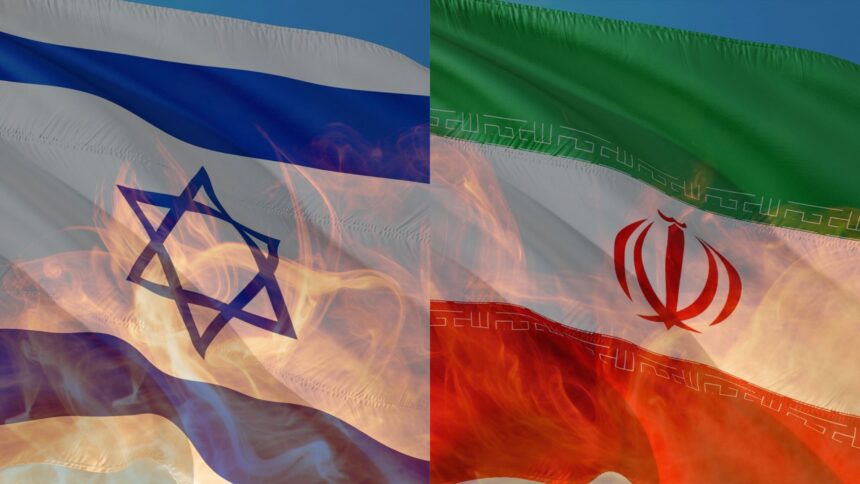In a major escalation, Israel carried out a large-scale military strike against Iran, targeting key nuclear and military sites. The operation is being called the most direct confrontation between the two nations in recent history.
The operation, being referred to as “Operation Rising Lion,” began early on June 13 and involved more than 200 Israeli fighter jets crossing into regional airspace to strike more than 100 key locations within Iran. These included missile launch facilities, nuclear enrichment facilities, and vital command centers operated by Iran’s Islamic Revolutionary Guard Corps (IRGC).
The Israeli army was intent on limiting Iran’s capacity to build nuclear weapons, focusing on the nuclear enrichment plants in Khondab, Fordow, and Natanz. When the IRGC command center was struck, many senior officers were killed. Radar installations and missile arsenals are also in place to reduce Iran’s ability to respond in the future. Israeli Defense Minister Yoav Gallant stated that the mission’s objective was to “deter Iran’s nuclear aspirations and remove immediate dangers.”
Iran has reported more than 320 people injured and at least 78 dead, including both civilians and military personnel. According to multiple sources, several senior IRGC leaders, including Major General Mohammad Bagheri, the head of staff of the Iranian Armed Forces, are among those killed. And the IRGC’s Chief Commander, Hossein Salami. Significant infrastructure damage has been reported, particularly near Natanz, a crucial nuclear site.
Iran quickly retaliated, launching “Operation True Promise III,” characterized by a bombardment on Israeli cities such as Tel Aviv, Haifa, and Be’er Sheva with around 60 ballistic missiles and drones. Israel’s Iron Dome and Arrow defense systems stopped the majority of the missiles, but some managed to pass through, killing three civilians in central Israel, injuring many more, and damaging a school and several homes. Fearing an escalation, locals sought protection in bomb shelters as air raid sirens blared throughout the night.
The conflict rapidly escalated, provoking an immediate and increasingly alarming response from world leaders. To address the problem, the UN quickly called an emergency Security Council meeting, stressing the swift reaction of the international community. While emphasizing that the US was not directly involved in the crisis, U.S. President Joe Biden voiced his “deep concern” about the state of affairs and asked Israel and Iran to use caution. Simultaneously, China and Russia condemned Israel’s activities as “aggressive acts,” warning of the potential consequences for regional stability. European Union officials joined the international chorus, calling for a quick de-escalation to prevent further violence and for all parties to concentrate on diplomacy.
In terms of economics, the disagreement caused a stir in global markets, leading to a rise in instability and concern. With Brent crude hitting about $83 per barrel, oil prices surged by more than 10%, raising fears of a possible stagflationary shock as rising energy costs might block economic development and drive up inflation. Stock markets around the world fell, and countries that import energy were most affected. Investors rushed to safe-haven assets at the same time, as gold prices spiked and stocks in the defense industry rose due to predictions of extended turbulence and higher military spending.
Concern that the dispute could turn into a larger Middle Eastern war is growing. The possibility of a multi-front conflict has increased due to the commitments made by Hezbollah in Lebanon and Iranian-backed militias in Iraq and Syria. The UAE, Saudi Arabia, and Jordan have all put their military forces on high alert and blocked their airspace as a sign of how serious the situation is. Israel has activated 60,000 reservists and proclaimed an emergency across a large portion of the country’s central and northern areas in anticipation of an escalation.
A hidden “shadow war” between Israel and Iran has been going on for years, marked by sabotage, cyberattacks, and proxy wars in places like Syria and Lebanon. Nonetheless, this is a dramatic shift—it is the first time in decades that Israel has attacked across Iran’s borders with such a high level of force. According to analysts, the operation was started because Israel acted before it was too late after receiving intelligence that Iran was just a few weeks away from turning its enriched uranium into weapons.
Despite the intense attacks, neither Iran nor Israel has formally declared war on the other. However, a number of outcomes now seem likely. It is expected that military interactions—through airstrikes and cyberattacks—will continue in a risky cycle of back and forth. The UN and other international organizations are stepping up their diplomatic efforts, urging both sides to defuse the situation and avoid further hostilities. At the same time, rising fuel prices and increased regional change may have an impact on global supply chains, endangering trade routes and global economic stability.
Media from both sides are spreading strict narratives and increasing national feelings. Publications like Haaretz and The Jerusalem Post are portraying Operation Rising Lion as a valid form of self-defense in Israel. Analysts see the attack as a tactical win that gave Israel crucial time, while headlines highlight the threat of an Iranian nuclear bomb that is nearly complete. State media in Iran, including IRIB and Tasnim, are condemning the attack as a “despicable act of war” that is motivated by Western interests. Reports emphasize IRGC funerals and civilian losses, presenting Israel’s actions as a deliberate massacre. Both countries’ media are gaining public support, igniting anger, and exerting pressure on their governments to keep up fast—making peace appear more and more impractical every day.
“Operation Rising Lion” represents a significant change in the prolonged Israel-Iran war from hidden operations to open, direct military confrontation between the two countries. The days ahead will be crucial as both sides suffer significant losses and the world watches closely. The implications are already being felt well outside of the Middle East, but it is unclear if this will lead to a push for negotiation or a decline into a larger regional conflict.


Leave a Reply